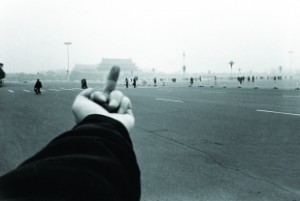The New York Observer’s Alexandra Peers tackles the issues of censorship and silencing that seems to be pervasive in her article, Whitewashing the Art World: What’s Behind the Climate of Censorship.
The art world has a reputation as free-thinking and tolerant, if not overly so. But in recent weeks, there have been several instances, far more than usual, of alleged censorship involving some of the bigger names in the field. What’s going on?
Charles Gaines has also written about this very same issue, and so have I.
What is going on?




